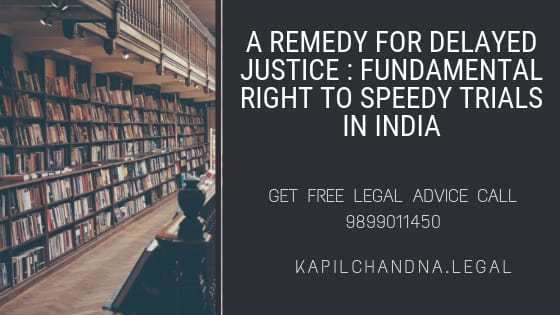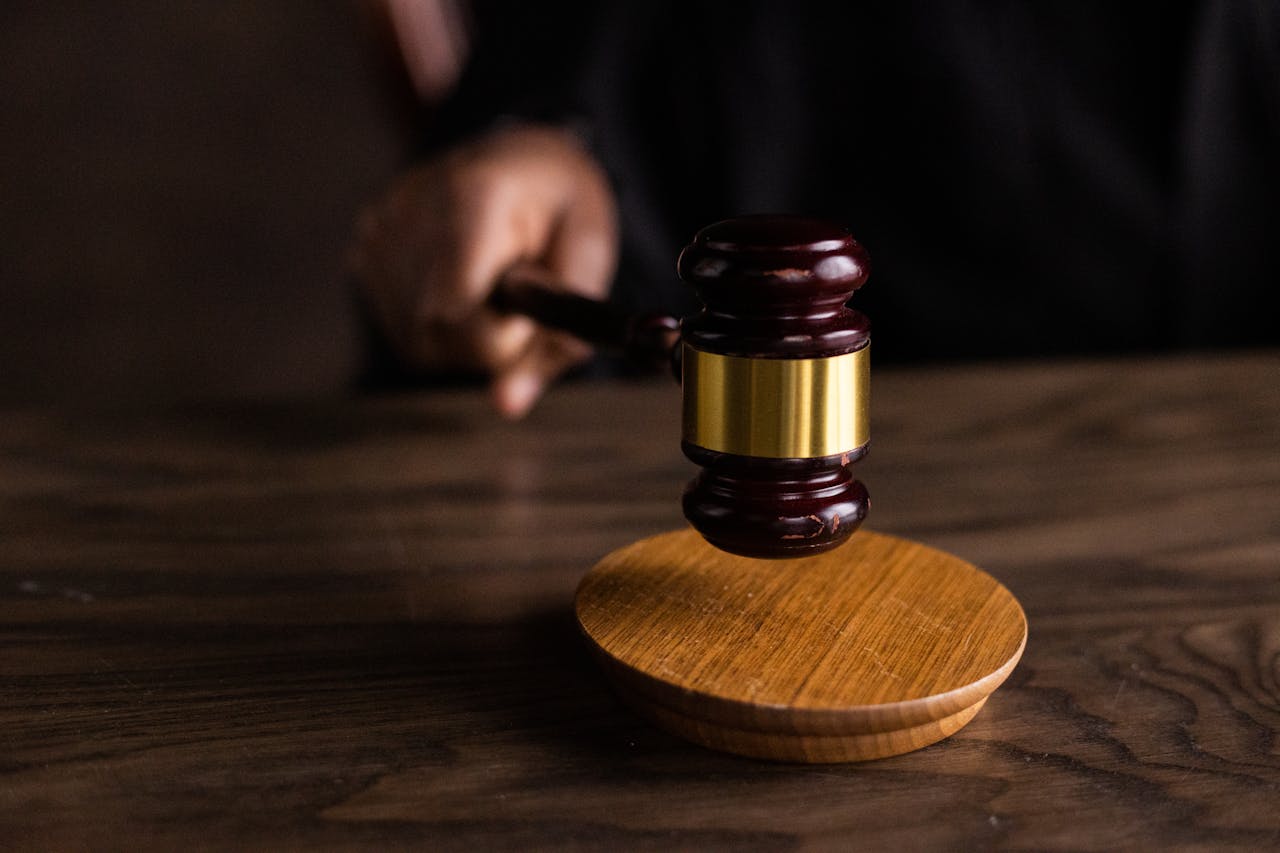Speedy Trail in India: A Remedy for Delayed Justice
‘Speedy Trial’ is a fundamental right guaranteed under article 21 of the Constitution to the accused of early disposal of cases. The constitutional guarantee of speedy trails is an important safeguard to prevent undue and oppressive incarceration to trial; to minimise concern accompanying public accusation and to limit the possibilities that long delays will impair the ability of an accused to defend himself.
The right to a speedy trial is a human right under which it is asserted that a government prosecutor may not delay the trial of a criminal suspect arbitrarily and indefinitely. Otherwise, the power to impose such delays would effectively allow prosecutors to send anyone to jail for an arbitrary length of time without trial.
Although it is important for the protection of speedy trial rights that there be a court in which a defendant may complain about the unreasonable delay of the trial, it is also important that nations implement structures that avoid the delay.
There are various factors which contribute to delay in trials and results in the pendency of cases; they are:
- Court system delay which accounts for the period of entering the cause till it’s taken up for trial.
- Delay due to the professional courtesy of lawyers towards each other and lawyer’s vis-a-vis the court.
In Hussainara Khatoon v. State of Bihar of 1980, Speedy trial was recognized as a Fundamental right under article 21. In the case of Katar Singh v. the State Of Punjab, it was held that Right to speedy trial is an essential part of fundamental right to life and liberty. Also in the case of Sheela Barse v. Union Of India, The Supreme court reaffirmed that Speedy trial is a fundamental right.
- How long does it take for a person to go to a normal trial in India?
The preliminary hearing phase of the trial usually takes place 5-6 days after an arraignment. In case of a misdemeanour charge, the next phase of the trial is the motions and hearing phase. This usually takes 3-4 months to occur but can last as long as 2years!
- In how many days a speedy trial be winded up?
In many jurisdictions, the prosecution generally has 60-120 days to bring an imprisoned defendant to trial unless the defendant waives the right to a speedy trial. The time period is generally longer for a defendant out of custody.
At the same time, it cannot be denied that cases are delayed in the interest of the defendant, its rightly said that delay is known as a defence tactic. To effectively implement this right of the speedy trial the approach to be adopted by the judiciary should be a practical one instead of a pedantic one.
- At which stage speedy Trial can be initiated in a proceeding?
As held in the case of A.R.Antulay vs. R.S. Nayak Speedy trial can be demanded all the stages which include Investigation, Inquiry, trial, appeal, revision an retrial.
The speedy trial has to be observed at every stage till last breath of an accused and shall be extended to the disposal of Mercy petition under article 72; as declared in the case of Triveniben v. the State of Gujarat by the Gujarat High court.
- What is the procedure to apply for speedy trials?
Speedy trials can be applied by filing a petition under section 482 of the Criminal procedure code for getting direction from the High Court to the lower court for Speedy disposal of the case and you can direct the lower by through high court for disposal in a specific period of time.
Delay in trial unnecessarily confers a right upon the accused to apply for bail. Under section 482 read with 483 Cr.P.c. lays that every possible measure to be taken to dispose of the case within 6 months from today.
An accused or a defendant can apply for speedy trials in the Hon’ble High Court or the Supreme Court by filing a writ petition under article 226 and article 32 of the Constitution respectively.
- Quashing of the pending cases.
In Abdul Rehman vs.R.S. Nayak the SC observed that the ultimately it’s the courts whether Right to a speedy trial has to be denied or not. Every time proceedings cannot be quashed as it might not be in the interest of the society.
Moreover, in the case of Arun Kumar Ghosh v. the State of Bengal, it was held that mental torture and anxiety suffered by an accused of a long time be treated as a punishment inflicted on him.
Also in the landmark judgement of Vakil Prasad Singh vs. State of Bihar Supreme Court had held that unjustified delay in the prosecution amounts to the violation of a fundamental right of an accused.
Conclusion
Speedy trials make the Judiciary more efficient and trustworthy having its main towards inculcating justice in the society at the earliest..!! As held in Hussainnara v. Home Secretary that speedy trial is the essence of the criminal justice and there can be no doubt that delay in the trial itself constitutes a denial of justice.
A legal maxim which says “JUSTICE DELAYED IS JUSTICE DENIED” can be corrected only by the way of speedy trials and get your cases disposed of earlier!!




